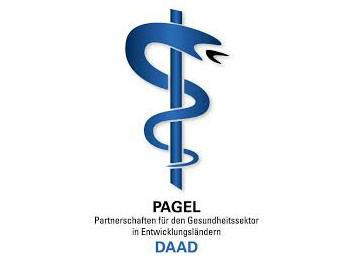The SHMS students who have been further trained now train their fellow students.
Mention
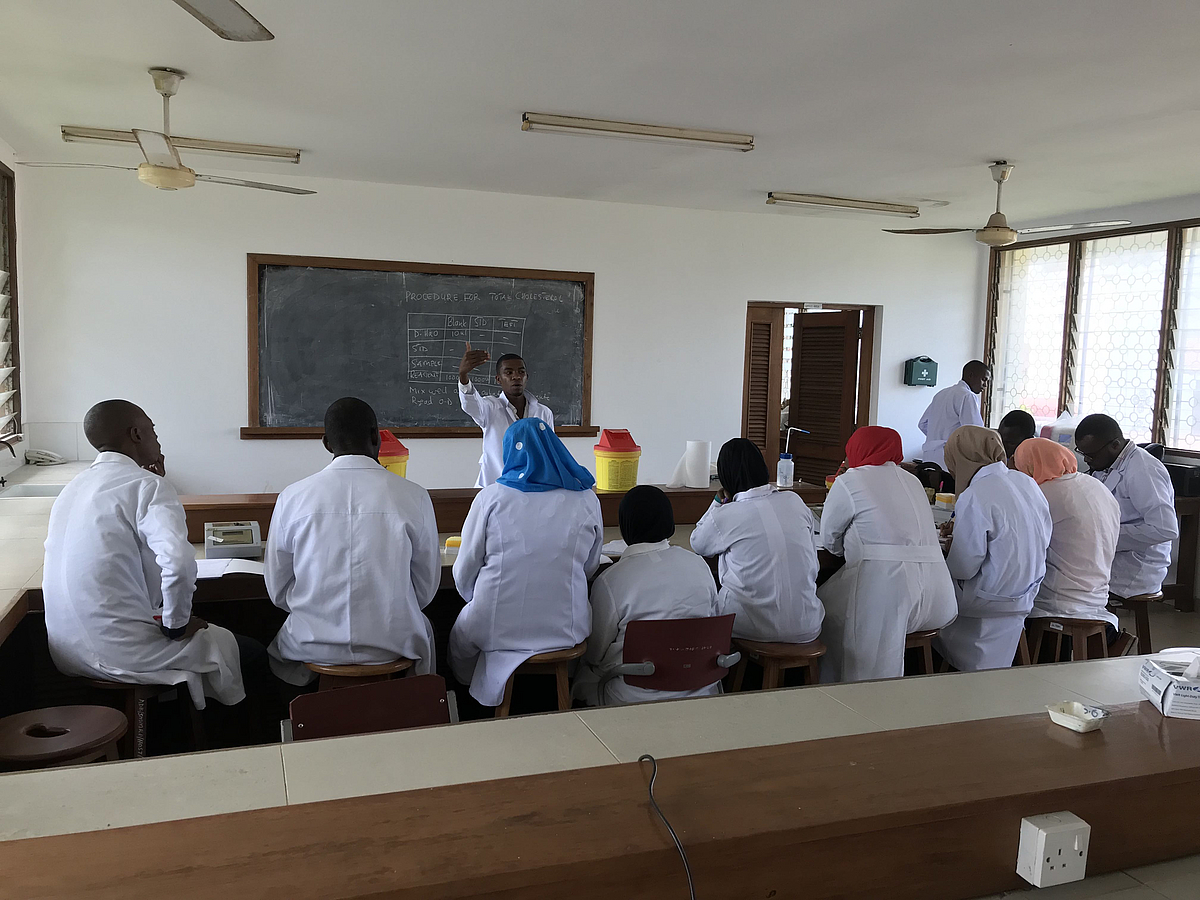
Students train their fellow students
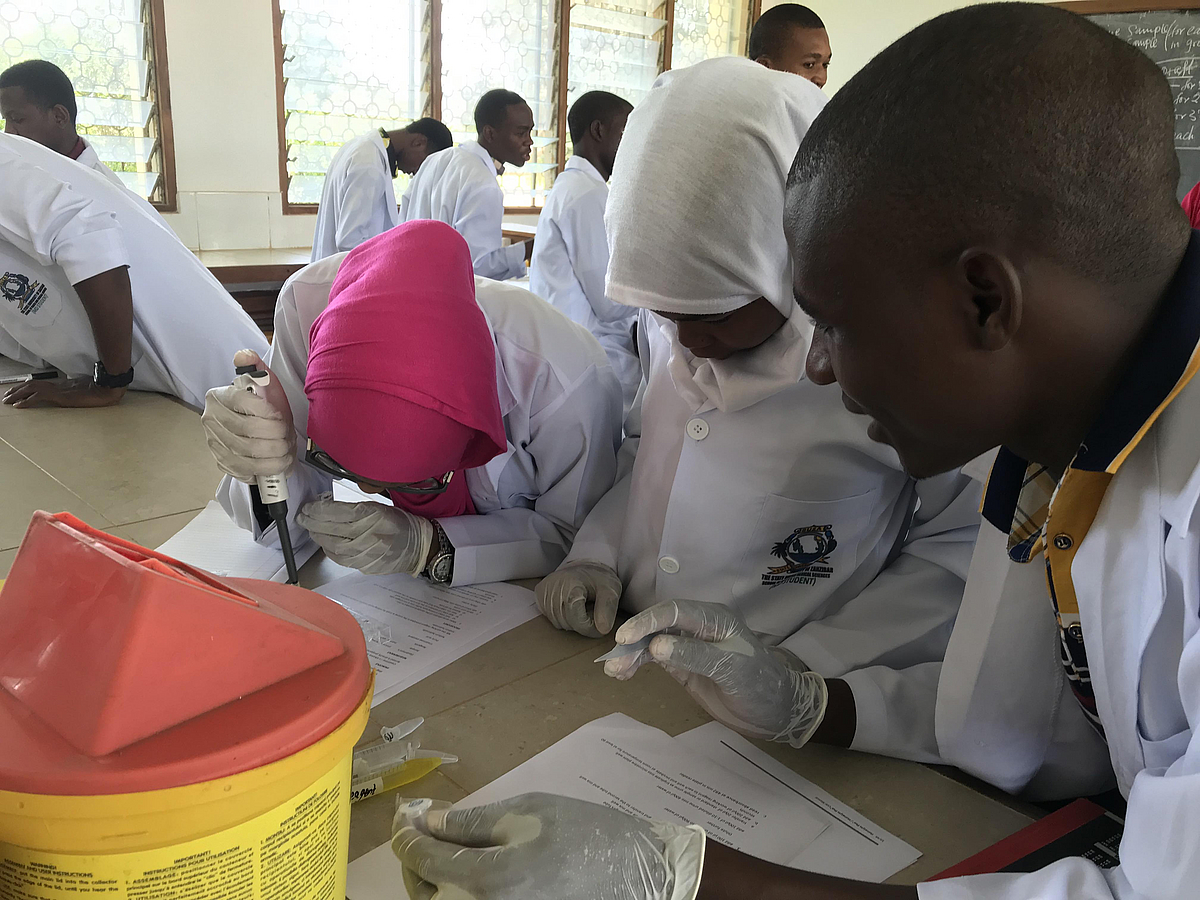
Students test their knowledge
Students at the School of Health and Medical Sciences (SHMS), the health-related education department of Zanzibar State University.
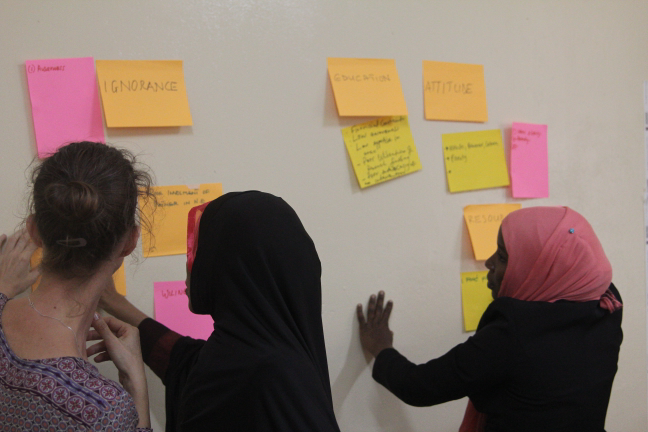
Final workshop
The final workshop of MENTION where new work packages are defined.
MENTION in a nutshell
MENTION aims to integrate nutrition and health maintenance topics in the curriculum of the medical education, to train experts from the entire health sector in relevant nutrition and health related aspects, and to provide up-to-date data that provide information on the state of health of people in Zanzibar.
project period
01.09.2019 - 31.08.2022
The project presented
In 2013 the Leibniz Institute for Prevention Research and Epidemiology .BIPS conducted a population-based health and nutrition survey in Zanzibar: Zanzibar Nutrition and Health Survey (ZUTAS). After the presentation of the results in 2018, it was decided to work on long-term solutions for improved health education in cooperation with State University of Zanzibar (SUZA), the University of Bremen and BIPS. As a result, the project MENTION (Increased competencies for nutrition in Zanzibari health care) was initiated to address aspects of the Pagel programme of the German Academic Exchange Service.
Based on an extensive needs assessment, this project develops and sustains high-quality training and further education opportunities in the medical sector. MENTION aims to integrate nutrition and health maintenance topics in the curriculum of the medical education, to train experts from the entire health sector in relevant nutrition and health related aspects, and to provide up-to-date data that provide information on the state of health of people in Zanzibar.
The Zanzibar Nutrition and Health Survey investigated the prevalence of diet- and lifestyle related disorders and their risks factors, such as socio-economic factors influencing the health status population of tropical coastal ecosystems. Ecosystem functions and services are changing at local and global level, for example due to environmental changes and expanding tourism. The extent of this influence and the consequences can be researched particularly well in Zanzibar, as Zanzibar has a lot of coastline and the landscape conditions allow a good comparison between heavily influenced and unaffected areas. Later, the impact of the changes on human health, which is part of the environment, was also studied.
Increased competencies for nutrition in Zanzibari health care. (n.d.). Retrieved October 31, 2019, from www.bips-institut.de/en/research/projects/detail-view.html
PAGEL - Partnerships for the Health Sector in Developing Countries. (n.d.). Retrieved October 31, 2019, from www.daad.de/der-daad/unsere-aufgaben/entwicklungszusammenarbeit/foerderprogramme/hochschulen/infos/en/44500-pagel--partnerships-for-the-health-sector-in-developing-countries/

Contact
Prof. Dr. Sørge Kelm
Glycobiochemistry
skelmprotect me ?!uni-bremenprotect me ?!.de
phone: +49 (0)421 218 - 63222
Download
Nutrition literacy of the Zanzibari health system (in German)
grid-2-columns-sustainability
Sustainable Development Goals
MENTION relates to Sustainable Development Goals 2 (No Hunger), 3 (Health and Well-Being), and 4 (Quality Education), and aims to transfer research to society through direct engagement with the community.
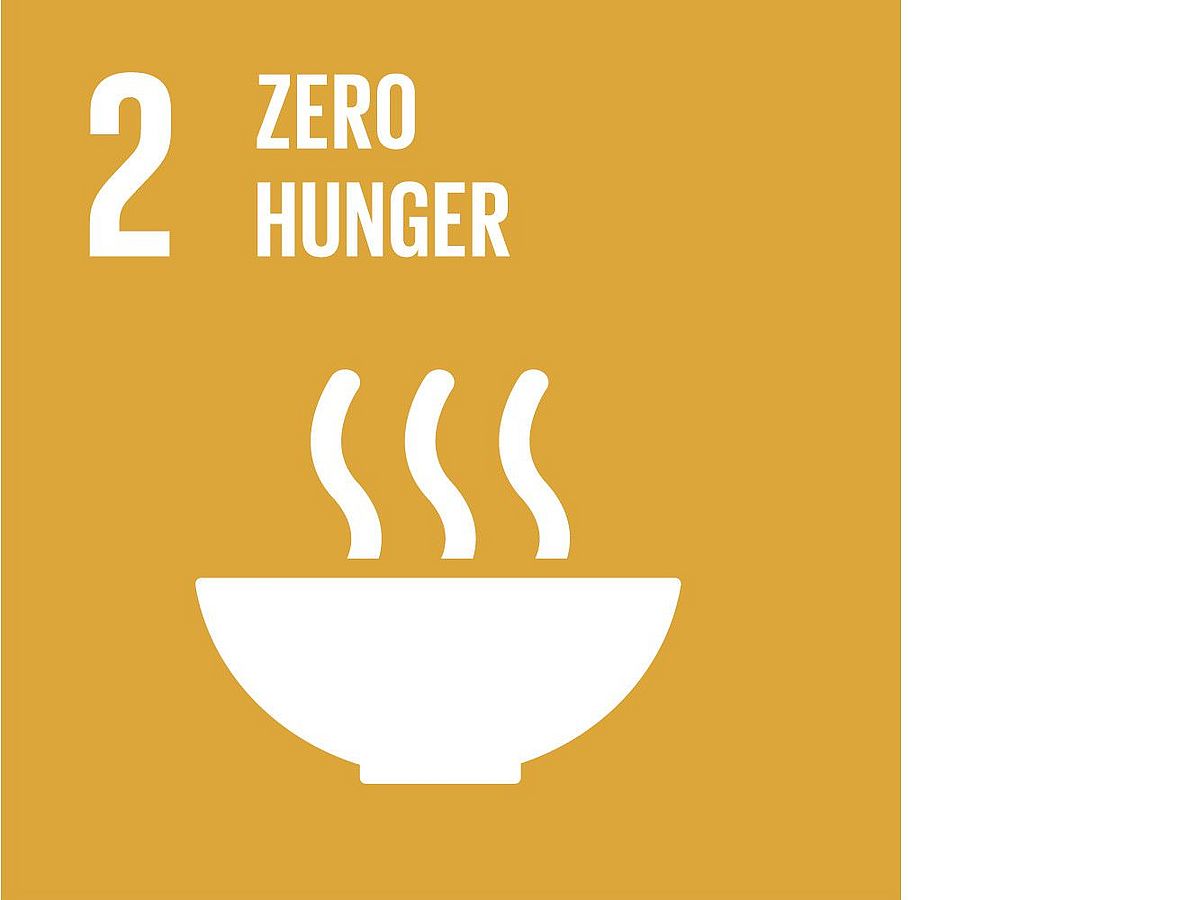
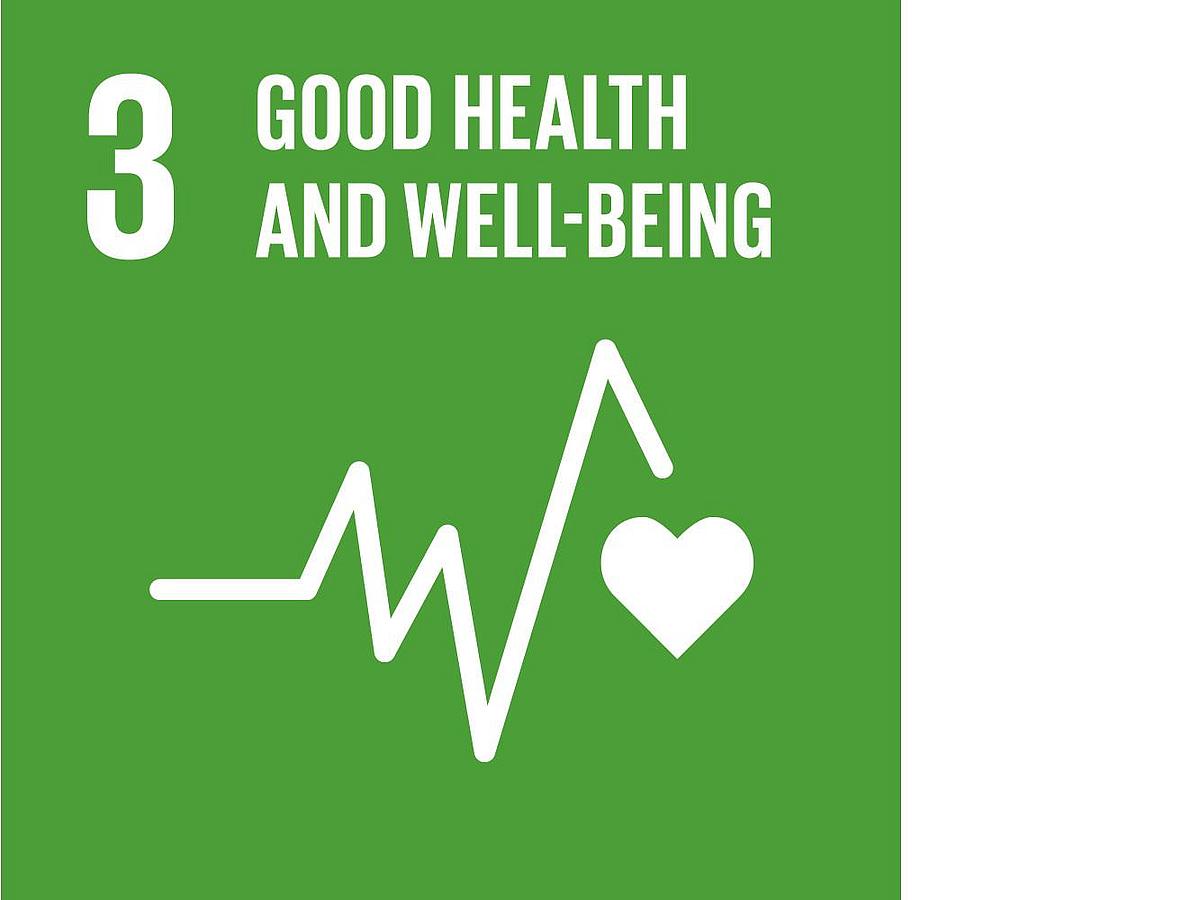
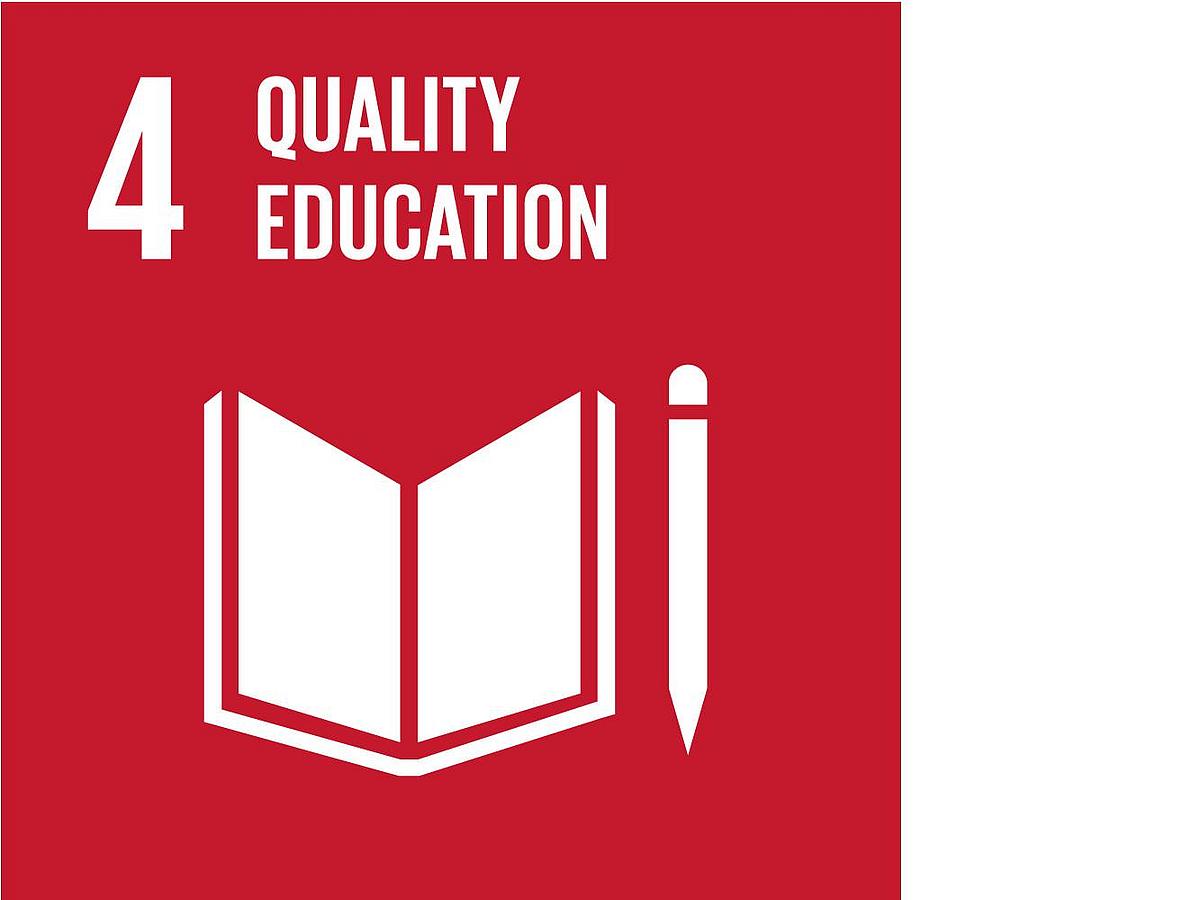
selected publication
Report on Nutrition Education in Zanzibar: a needs assessment, December 2018
File name: MENTION_WORKSHOP_REPORT_03Feb2021.pdfLast update: 08.02.2021
Cooperations and Sponsoring
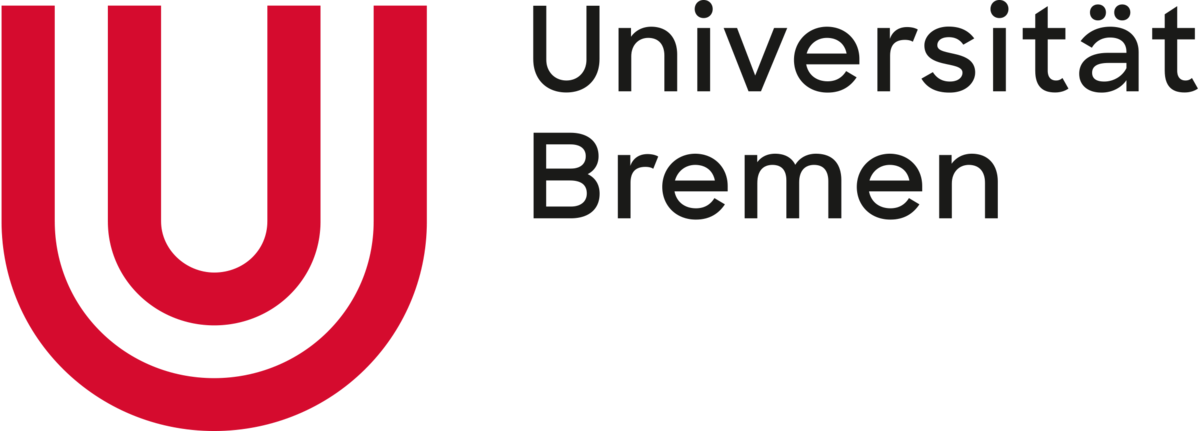
The Department of Biology and Chemistry, in particular Prof. Sørge Kelm from the University of Bremen, has many years of experience in coordinating cooperative research projects with partners in sub-Saharan Africa, both in research and capacity building. One focus of his projects is the role of nutrition in non-communicable diseases on the continent.
The Institute for Didactics of Science (IDN) at the University of Bremen. The PhD thesis associated with Proshed and connected with MENTION is written by Saskia Tenberg at Faculty 2 (Natural Sciences) and supervised by Prof. Doris Elster from IDN Biology. Research areas are on a European level in the field of responsible research for a sustainable future as well as the professionalization of teachers in the field of natural sciences for the school and extracurricular sector.
The programs at SHMS aim to train health professionals, physicians, nurses, laboratory scientists and pharmacists. This is essential to address current and future health problems. The SHMS is also responsible for providing trained health workers within and outside the region, and for identifying and describing key health issues in the local and international context.
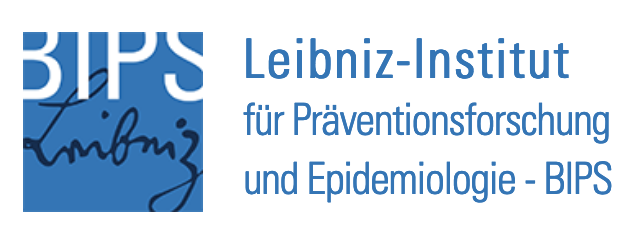
The Leibniz Institute for Prevention Research and Epidemiology - BIPS develops effective strategies for the prevention of chronic, non-communicable diseases. Supporting a healthy life-course early on is our primary goal. The focus of our research is therefore on factors beyond individual diseases, such as lifestyle and environment, biological and social factors, as well as early detection and drug safety. Our research spectrum covers methodological development, the identification of the causes of diseases, and intervention and implementation research. We also offer information to politicians and the general population and provide academic qualification to young scientists. BIPS thus covers the entire cycle of epidemiological research. Since September 2016, BIPS has been WHO Collaborating Centre for Obesity Prevention, Nutrition and Physical Activity.


